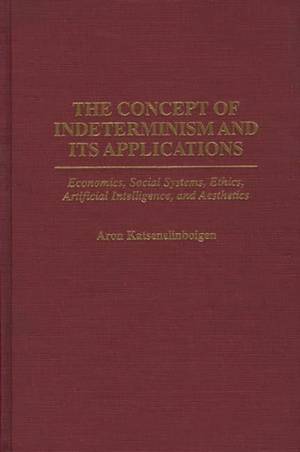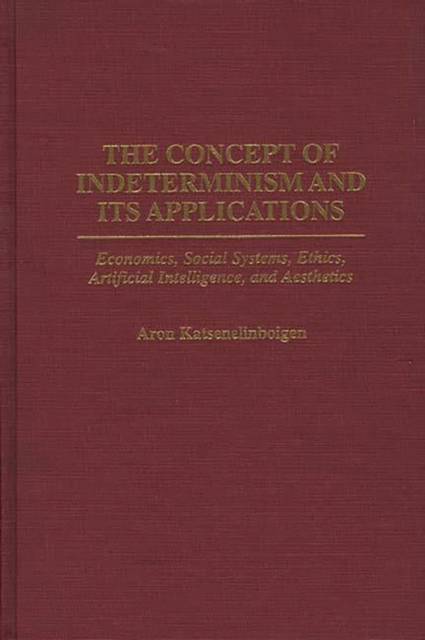
- Retrait gratuit dans votre magasin Club
- 7.000.000 titres dans notre catalogue
- Payer en toute sécurité
- Toujours un magasin près de chez vous
- Retrait gratuit dans votre magasin Club
- 7.000.0000 titres dans notre catalogue
- Payer en toute sécurité
- Toujours un magasin près de chez vous
The Concept of Indeterminism and Its Applications
Economics, Social Systems, Ethics, Artificial Intelligence, and Aesthetics
Aron KatsenelinboigenDescription
Scholars in various fields are exploring similar ideas to combat indeterminism when conditions are chaotic and prohibit the use of a rigid program approach, even with probabilities. Many do not realize that they are dealing with the same issues that appear between chaos and full order (or stochastic processes) in a phase that lends itself to the same formal treatment. Examples are observed in the development of social systems, in the evaluation of the performance of a corporation or a position in chess, in the perception of artworks. Conceptualization of this treatment requires a better understanding of the category of indeterminism. Confirmation of this is the absence of separation between indeterminism and, especially, uncertainty. One indirect confirmation of this is the lack of a developed concept of the degree of indeterminism.
The author contends that the category of indeterminism has its own meaning dealing with unavoidability. There are several phases in the spectrum of measurement of indeterminism, among which is a phase--a key phase of this book--which requires the introduction of the category of predisposition and a corresponding calculus of predisposition. By means of the aesthetic method, the degree of beauty (ugliness) measures perception by the given subjet of the predisposition for development of observable objects.Spécifications
Parties prenantes
- Auteur(s) :
- Editeur:
Contenu
- Nombre de pages :
- 240
- Langue:
- Anglais
Caractéristiques
- EAN:
- 9780275957889
- Date de parution :
- 30-12-97
- Format:
- Livre relié
- Format numérique:
- Genaaid
- Dimensions :
- 156 mm x 234 mm
- Poids :
- 512 g

Les avis
Nous publions uniquement les avis qui respectent les conditions requises. Consultez nos conditions pour les avis.






